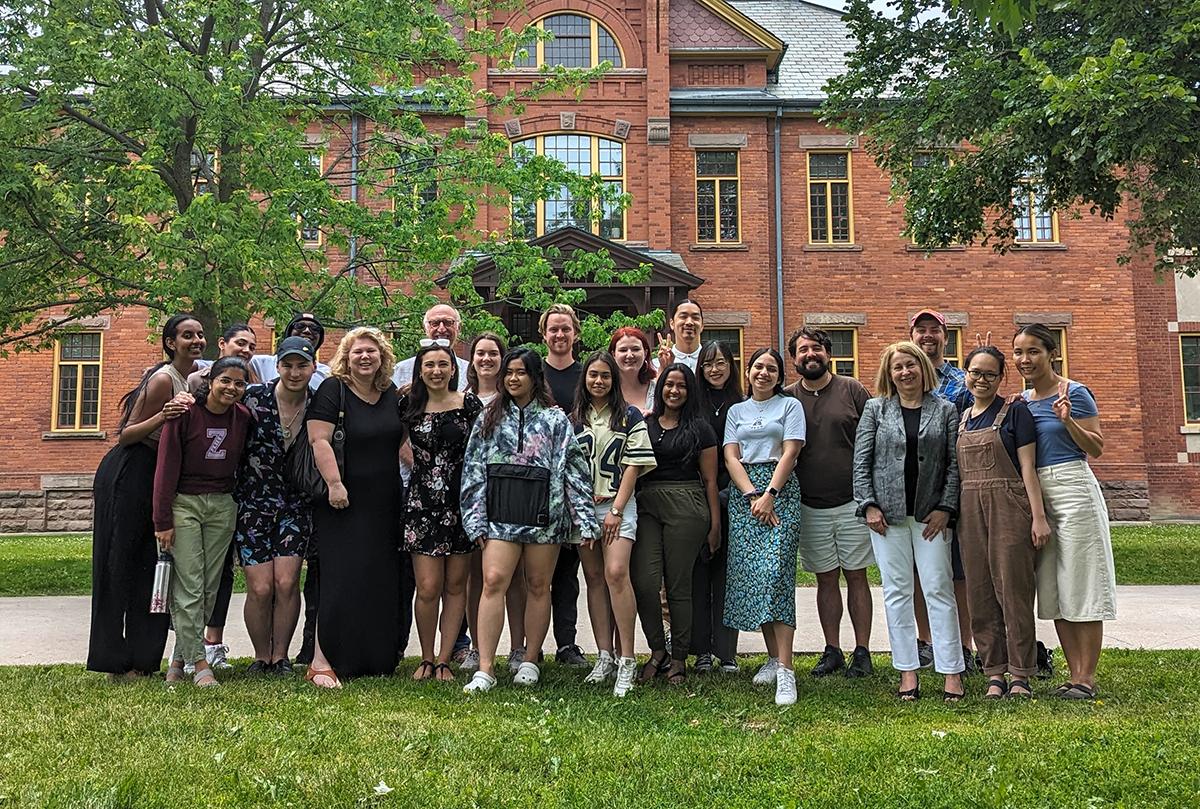
Marcus Tan de Bibiana has joined an online virtual video call from Nairobi, Kenya.
It’s a few hours ahead and, while it’s morning in Toronto, it’s Kenya’s early evening where the sun still shines in the background while he chats with Humber Today.
He’s a Humber Polytechnic alumnus who graduated from the International Project Management program that’s since been renamed to International Development. He’s been mostly in the region for about nine months and was brought there months before basing there to conduct research on the impact and relevance of Sudan’s Emergency Response Rooms (ERRs) - a community led and country wide-initiative supporting Sudan wartime community priorities with Gisa Group.
How did Tan de Bibiana find himself in Kenya, among many other countries, where he tries to make a positive impact? After taking International Development in university, Tan de Bibiana felt he had a good grasp of the theoretical subject matter, but wanted the practical hands-on learning that Humber could provide in order to excel in his field. He reminisced about his Humber professor Rupen Das, who told Tan de Bibiana something that has stuck with him to this day.
“He said ‘By the time you finish this program, you might not feel like you’ve driven a car on the road, but you’ve driven it around the parking lot,’” said Tan de Bibiana. “The program wasn’t modelling fictious things but worked to model what was happening in the sector.”
“I felt a step closer to the real world at Humber and that drove me to try my best, consider the feedback I was receiving and to work as hard as I could,” Tan de Bibiana continued, adding he gained needed skills and confidence through the program.
Since graduating, Tan de Bibiana’s extensive humanitarian and development work has taken him to many countries, which he feels privileged to have collaborated in, including Somalia, Sudan, Afghanistan, Ghana, Lebanon, India, Bangladesh, Kenya, Philippines, the U.S. and Guyana.
Through this work, he’s had the opportunity to work with a wide range of groups and individuals, including Sudanese media and NGOs in Somalia working to climate resilience programmes.

Throughout his career, Tan de Bibiana has learned and grown a tremendous amount from his experiences and has seen many well-meaning individuals come and go. Some of them, he said, took a power-driven approach that they were there to direct and advise instructively while Tan de Bibiana takes a different approach – one he calls empathetic and imaginative listening and collaboration. While listening is classified as a soft skill, Tan de Bibiana feels empathetic listening is “perhaps the most important skill we can have.”
Whether it’s getting along with colleagues or learning from one another through conversations, being open to truly hear what the other person is saying and then reflecting on it is of critical importance and makes humanitarian and development collaboration that much more effective, he said.
A recent example of this collaborative approach came during his work as an independent civic values learning and data analysis advisor where he shifted to an external evaluator role. In this role, he collaborated with a Lebanese NGO, INITIATE, on a project where the experts are young Lebanese, Syrian and Palestinian learners and teachers from recent experiential social cohesion programs. Tan de Bibiana has observed that synthesizing their priorities reflected from lived classroom experience and implementing their prioritized recommendations is important to enable a healthy collaborative learning environment.
With peer learning as a recurring theme in his career, Tan de Bibiana returned to his alma mater to teach in the program he graduated from, first as an online course creator and professor before teaching in-person shortly before COVID-19. To date, Tan de Bibiana has taught at Humber for almost five years on the aspects of participation, monitoring and evaluation, decolonization and wellness in social impact, and observed excellent efforts of the students coming out of the International Development program.

“I can say that the Humber students I taught were more ready and probably more effective in this field than people working 10, 20 or 30 years in it,” said Tan de Bibiana. “I’ve seen what they can do in the classroom and their critical thinking skills, the questions they ask and the polish on their assignments shows me that, in my opinion, they’re as prepared or better prepared than some of those already in the field.”
Find out more about Tan de Bibiana and his work by visiting his linktr.ee page or LinkedIn pages.
Humber Polytechnic is more than just a place for higher education. It's a place where students come to reach their full potential; where they can find the person they knew was in them all along. In this Spotlight Series, part of Humber's The You You Knew Was In You campaign, we're highlighting current students and alumni who found the you that was in them, and gained their edge at Humber. Learn more by visiting humber.ca/you.